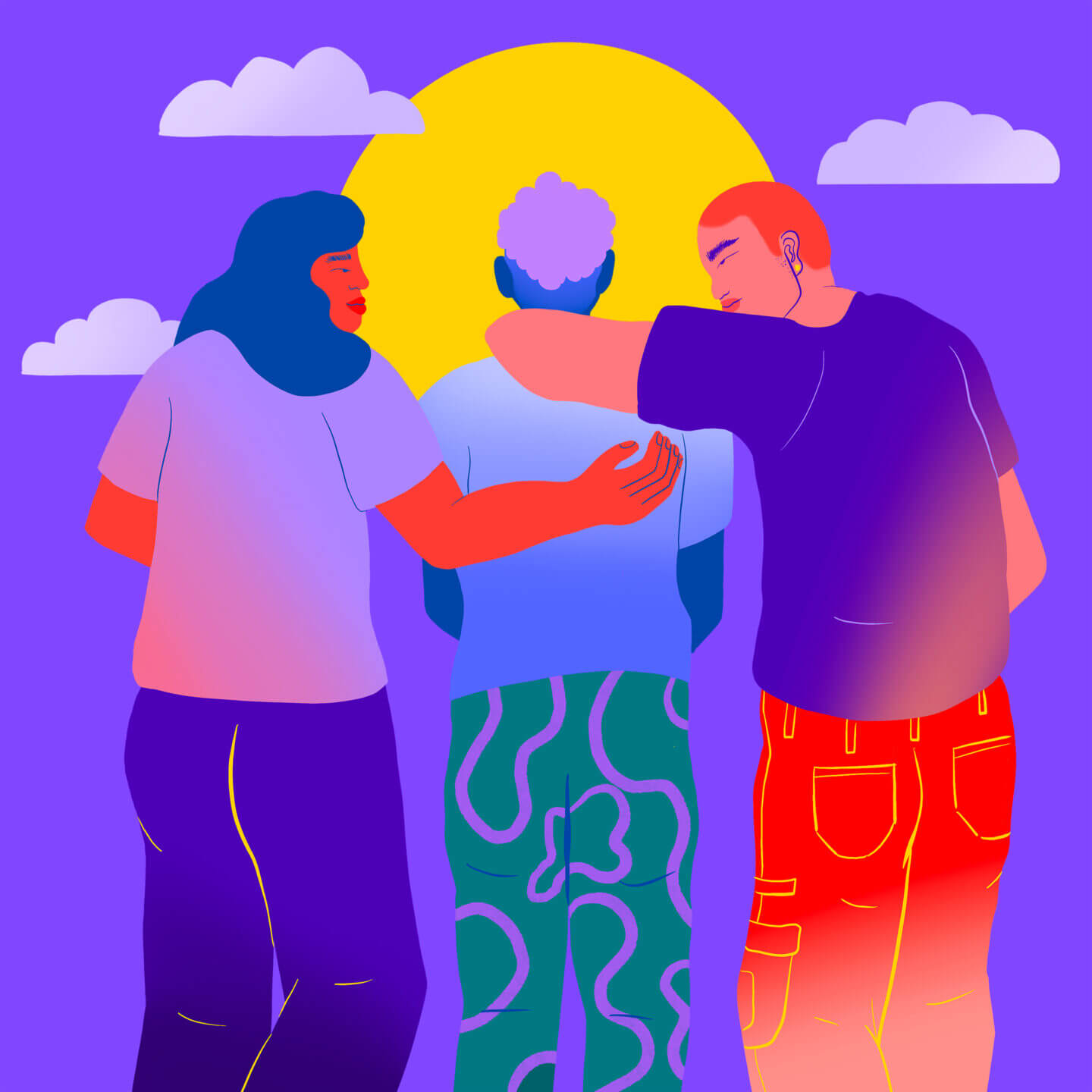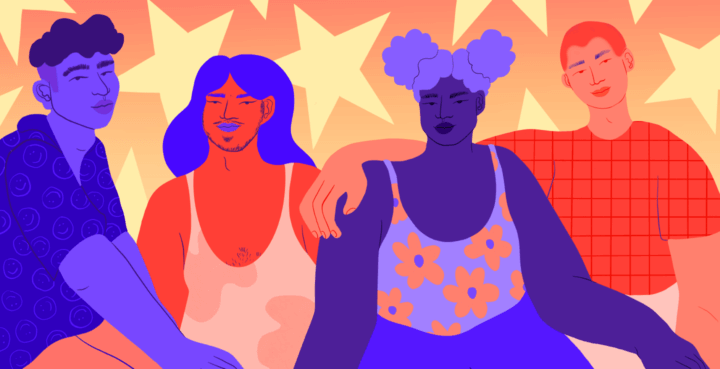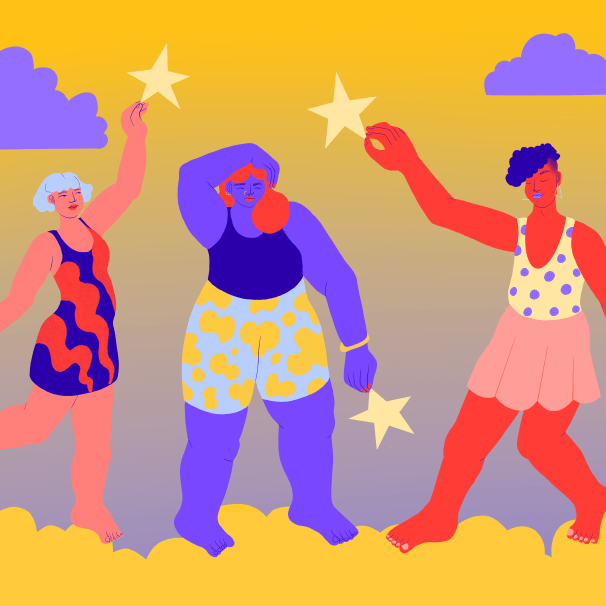Gay and lesbian people are unique individuals, just like everyone else.
Gay is an adjective that describe people who are physically, romantically, emotionally and/or spiritually attracted to other people of the same gender. In the past, “gay” specifically referred to men who are attracted to men. Now, it is common for “gay” to be used by anyone who is attracted to their same gender. It’s all up to you and which word fits you the best.
Example: “I’ve always known that I am gay.” / “I totally support my gay sister.”
Avoid saying: “That person is a gay.” (This uses “gay” as a noun, which doesn’t work.)
Lesbian is a noun that describes women who are predominantly attracted to other women. It can also be used as an adjective. Some lesbian women prefer to identify as “gay,” and that’s ok.
Example (Noun): “After school, I came out to my parents as a lesbian.”
Example (Adjective): “After coming out, I researched lesbian women from our history.”
No one knows for sure what makes a person straight, gay, lesbian, or even bisexual or transgender. There are many theories (biology, environment, personal experiences, etc.) but we know that there isn’t just one cause. Whatever the reason may be, it’s important to know that all orientations and identities are normal. They’re just a part of who we are!
FAQ
Question:
1. Is it true that I have to have sex with someone of the same gender to know that I’m gay?
Answer: Absolutely not! A person doesn’t need to have a physical experience with someone else to understand who they’re attracted to. In fact, sexual orientation describes way more than physical attraction – it includes our romantic, emotional, mental, and/or spiritual attraction to other people, too. Think about the crushes you’ve had, and who you fantasize about being with: girls, boys, both, or maybe other genders or sexes. Your feelings may or may not change as time goes by and you experience new things, and that is completely okay. Whatever you decide is true for you! No one besides you can decide how you identify.
Question:
2. Are all gay men are effeminate and are all lesbian women masculine?
Answer:
Our sexual orientation is actually very different from our gender expression. The first one has to do with who we’re attracted to, and the second has to do with how we express our gender (like being feminine or masculine, or somewhere in between). Although it can sometimes seem like one type of gay person is shown over and over again in the media or on TV, gay people aren’t automatically effeminate, and lesbian women aren’t automatically masculine – in fact, those stereotypes leave out a lot of other personalities and characteristics. Gay and lesbian people are unique individuals, just like everyone else, and can express themselves in an infinite number of ways! There’s no wrong way to be gay or lesbian. To learn more about gender identity and gender expression, please visit our Trans* and Gender Identity page.
Question:
3. I feel like gay and lesbian people only work in certain types of professions. Is that true?
Answer:
Actually, you can find gay and lesbian people in all different types of professions! Certain stereotypes offer a limited view on what gay and lesbian people do for work. For example, not all gay men are interested in fashion, theatre, or the arts. Likewise, not all lesbian women are interested in teaching sports, doing construction work, or becoming an athlete. While there may be some jobs that tend to have more gay or lesbian people in them than others, it often has to do with the cultural acceptance they might find in that particular field. Everyone wants to work at an accepting place, and some professions are just ahead of the curve. As society becomes more open and accepting, hopefully people will feel more freedom to follow their interests and explore a wider range of employment possibilities.
Question:
4. Can gay people have stable romantic relationships?
Answer:
Absolutely! There is no inherent reason why gay or lesbian couples would be unable to have a stable romantic relationship. Just like straight couples, people in same-sex relationships have ups-and-downs, break-ups, and make-ups. However, since marriage is still illegal for same-sex couples in many states, gay and lesbian relationships have less support from society. With that said, some LGBTQ people reject the idea of marriage, since it is historically tied to heterosexual (straight) couples, and choose to construct their own values and relationship styles. Whatever makes you feel happy and fulfilled is the best way to go!
Resources
- Advocates for Youth – I Think I Might Be Lesbian
- Advocates for Youth – I Think I Might Be Gay
- PFLAG – Be Yourself
- Planned Parenthood – Sexual Orientation
Through The Trevor Support Center you are able to link to other websites which are not under the control of The Trevor Project. The Trevor Project does not review or ensure the accuracy of the content on other sites.
Help us continue to provide 24/7 support to LGBTQ+ young people and empower allies to deepen their commitment through advocacy, education, and affirming content.


